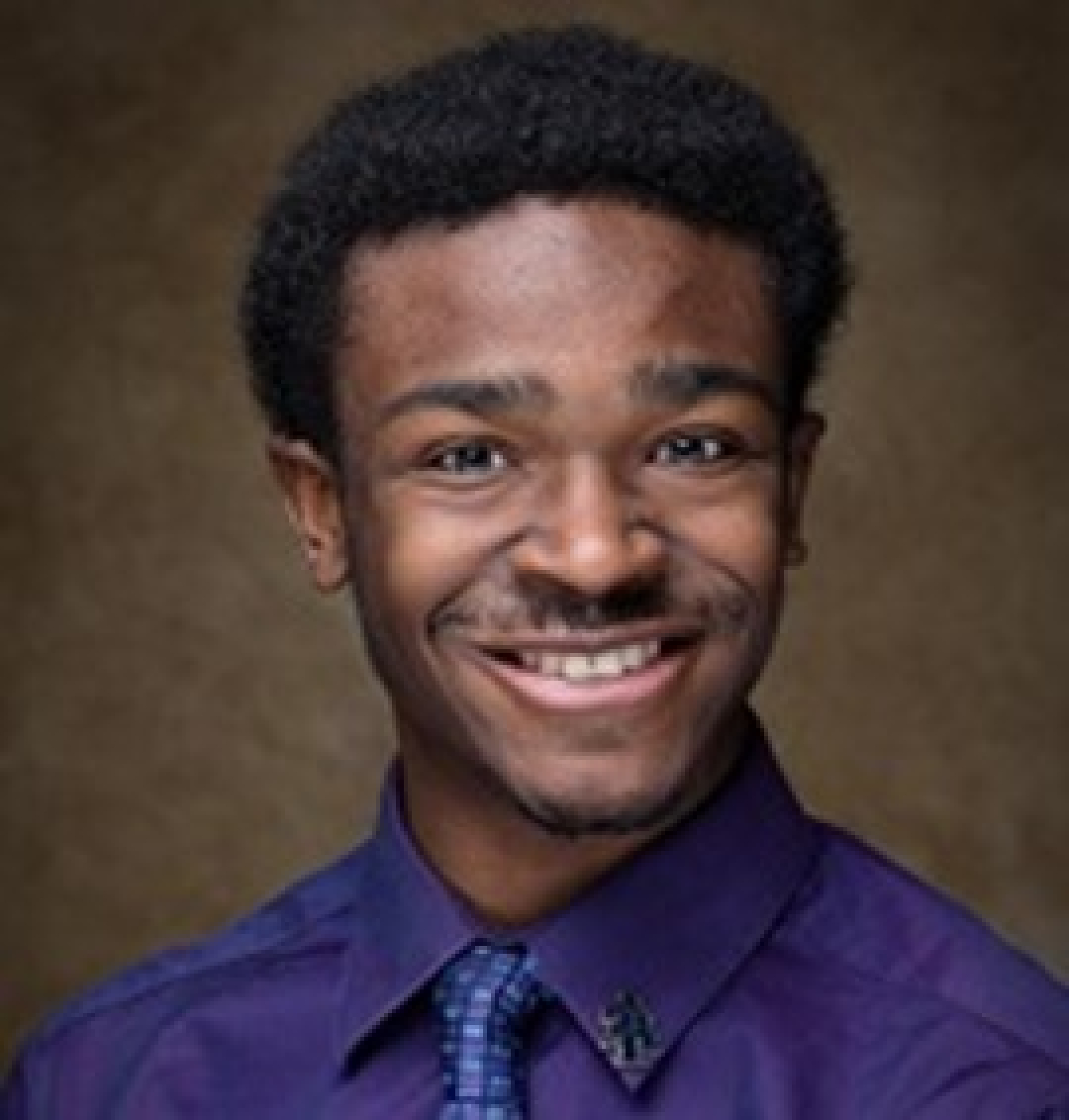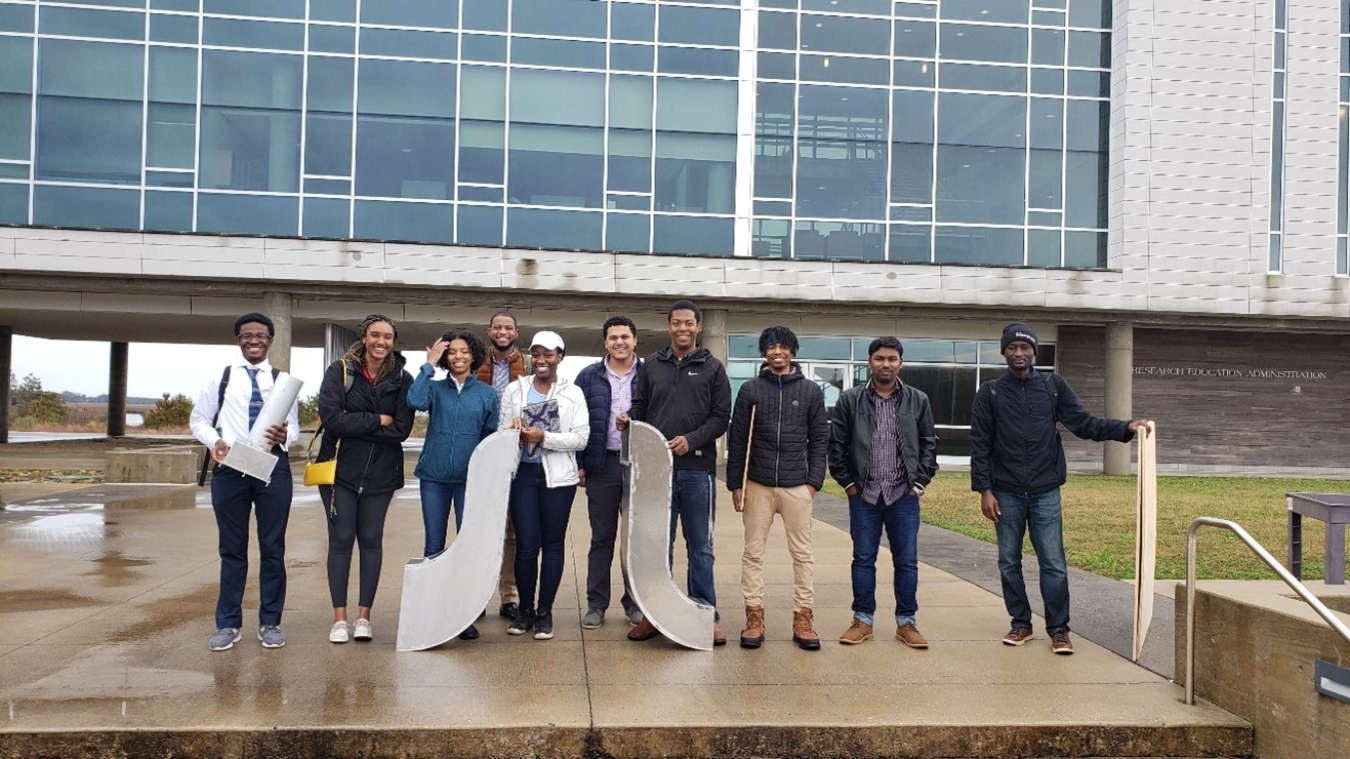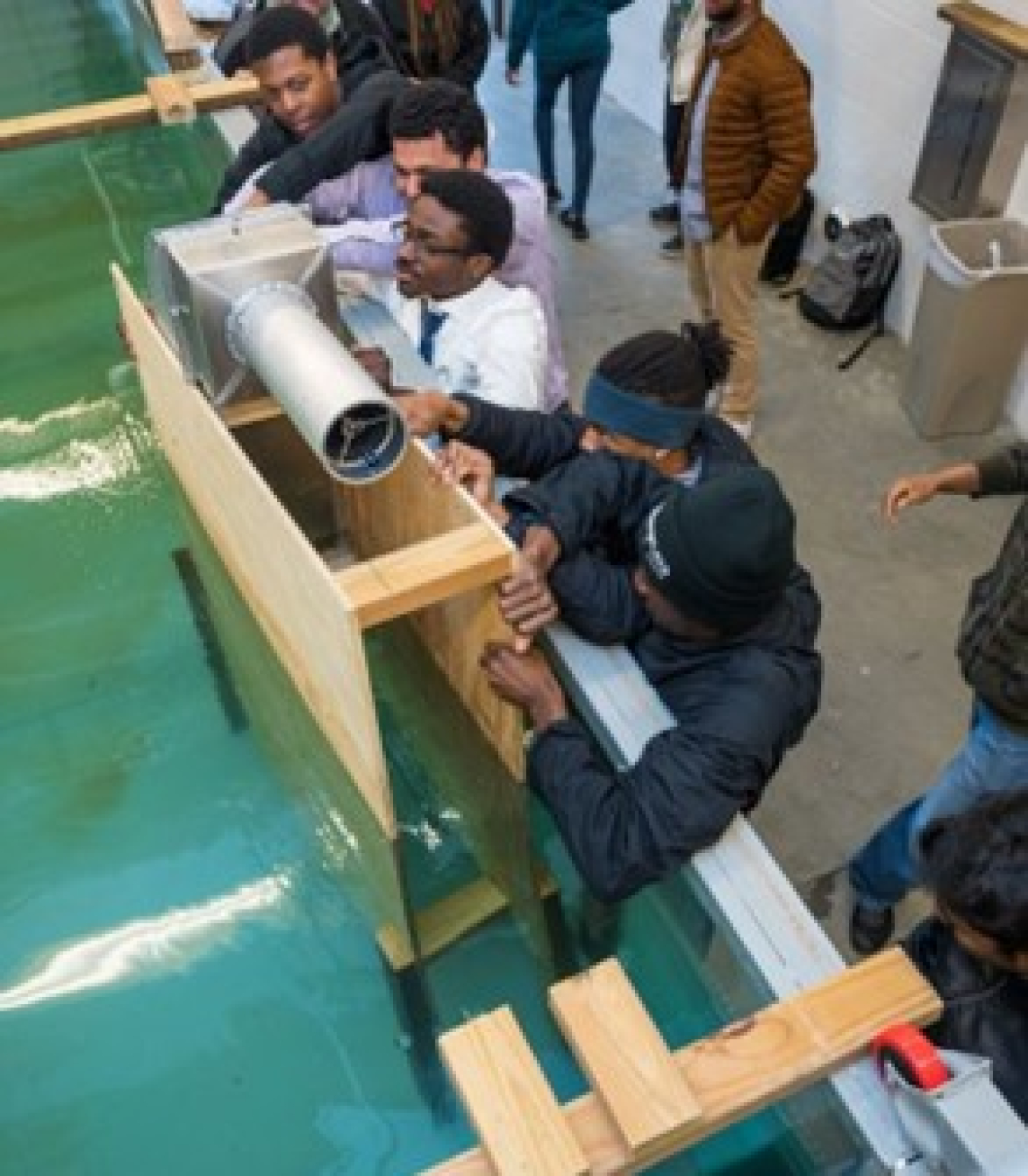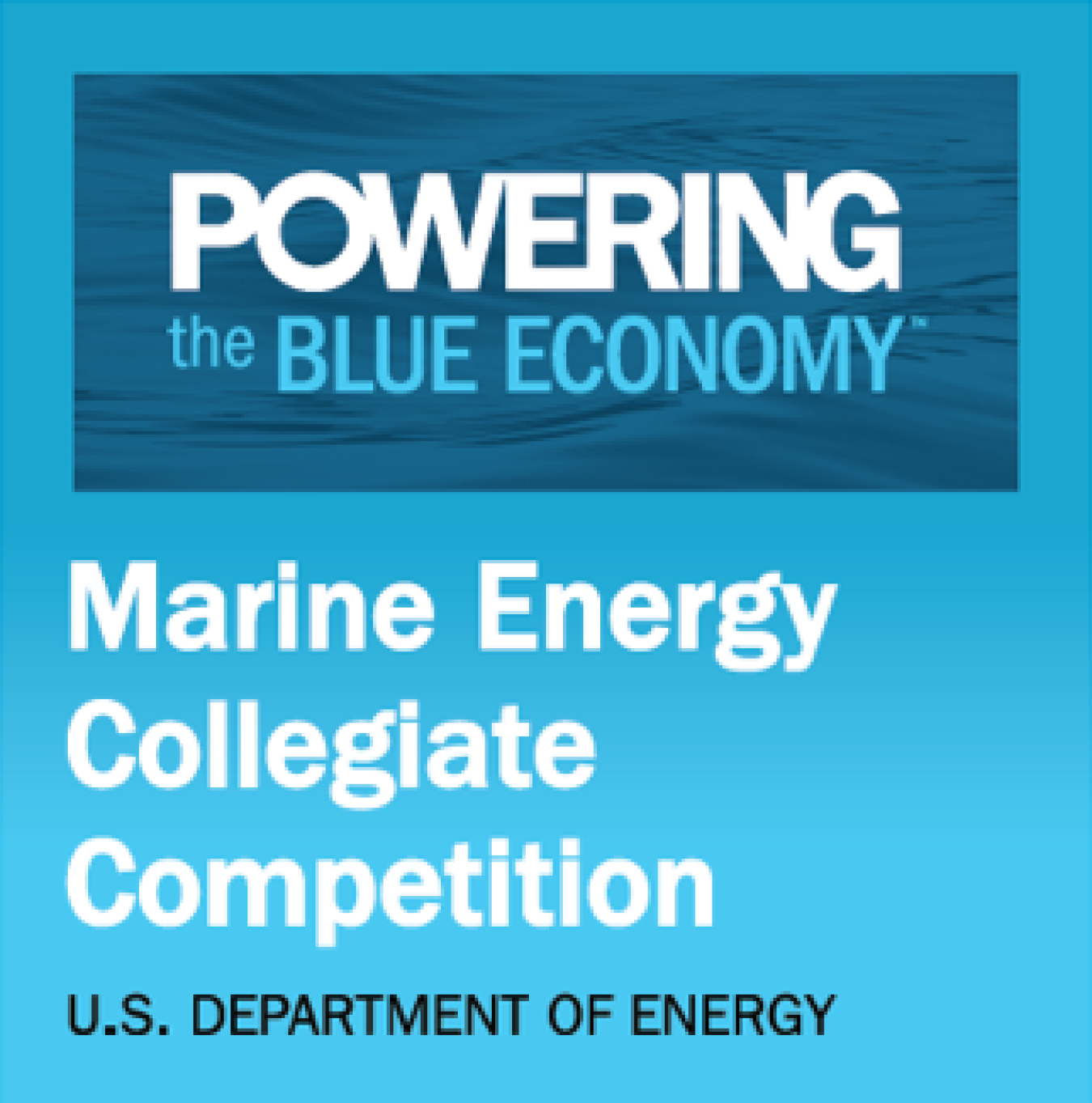Murphy Gay competed in the inaugural Marine Energy Collegiate Competition in 2020. Read about his experience, career goals, and vision for a future that runs on renewable energy.
Water Power Technologies Office
June 29, 2022
With a career in marine energy, Murphy Gay, a 2020 alumnus of the Marine Energy Collegiate Competition, can pair his love of nature and animals with a passion for engineering.
Growing up, Murphy Gay’s favorite word was “paleontologist.”
“I thought, ‘I'm going to go out in the world and dig up bones,’” said Gay, who is a summer intern at the National Renewable Energy Laboratory (NREL). (Spoiler alert: NREL does not hunt dinosaur bones). After dinosaurs, Gay fell in love with Animal Planet, animals, and ecology. And after that, he fell for the Science Channel, MythBusters, and engineering—which stuck. Now, Gay has discovered a niche field that, in a roundabout way, combines all his past loves (except for dinosaurs, that is).
“I may not be studying nature and animals,” Gay said, “but I'm helping to protect them.”
A native of Chicago, Illinois, Gay graduated with his bachelor’s degree in mechanical engineering from the North Carolina Agricultural and Technical State University in 2020 and competed in the inaugural Marine Energy Collegiate Competition (MECC) that same year. This competition offers participants the opportunity to develop solutions to complex energy challenges and build real-world experience and professional connections, paving the way for students to start their clean energy careers.
After graduating with his bachelor’s degree, Gay worked for the offshore wind energy company Ocergy and is now a summer intern at NREL working to advance marine energy to support resilient coastal communities. This National Ocean Month, Gay told us a bit about his MECC experience, career goals, and vision for a future that runs on renewable energy.
---
This interview is the first in a series of profiles featuring MECC alumni. The competition is funded by the U.S. Department of Energy’s Water Power Technologies Office and administered by NREL. It has been edited for clarity and length.
So, first you were gung-ho about dinosaurs. Then animals. But you didn’t end up studying either—what happened?
My parents did an amazing job of giving me so many extracurricular activities to expand my mind. There was one summer camp where we were exploring research in the fields we were interested in, and, even though I started out interested in animals, engineering was rapidly approaching as a big number two. I knew a lot more doors would be open to me as an engineer. And I really love solving problems, building stuff, and working with my hands. So, I thought, ‘Even if I ended up not liking engineering, it teaches you how to think. If I take engineering, I can go anywhere. I can do anything.’
That’s true. And you could have gone anywhere to do anything, but you chose to go into renewable energy—why?
I wanted to help the world become more efficient. That's sort of what engineers do. And because I really care about nature and protecting animals and their habitats, the best way to do that would be to move to renewable energy. If we use no-carbon fuels, then we don't have to chop down the rainforest, and we can protect the environment from global warming.
Which ties back to your interest in ecology. So, why wave energy?
I want to help wave energy—and anything related to marine energy—progress. The more we can diversify our energy sources, the greater amount of baseload power [energy available whenever its needed] we can provide. If we only have solar power, when the sun goes out, we don't have power. But if we have solar, wind, and waves, then we have a redundancy. If one goes out, we have others to pull from. I want to help push these renewable energy industries forward to make them more competitive with other energy sources.
What did you work on as an engineer at Ocergy and now as a summer intern at NREL?
At NREL, I work on floating wave energy, further developing existing 3D models for a variable geometry wave energy converter and running simulations on them. Ocergy provides floating structures for offshore wind. My job was to make sure the float won’t tip over too much and sink if there's too much wind or too many waves. To do that, I drew 3D models and ran programs and calculations to assess the model's stability.
Wow. That sounds pretty high stakes.
It is. It’s exciting. People always said that it's hard to get into research and development right out of the gate because that's normally reserved for Ph.D. or master’s students. But I was really lucky to get into research and development right away.

Murphy (far left) stands with his 2020 Marine Energy Collegiate Competition team, which was made up of fellow students from the North Carolina A&T State University's Senior Design Team.
Did MECC help you make that leap?
Definitely. It really did. The competition helped bolster my programming and Excel skills, understand how to look at a prototype and make a drawing from it really quickly, or vice-versa—get a prototype from a drawing and make sure it's easily understandable.
Was there an especially memorable moment from the competition?
Yes. Our team decided to design an oscillating water column, which is basically a column of hollow concrete that is sunk beneath the waves. When a wave hits the column from the outside, the water on the inside moves up and down, which is used to generate electricity. The world's largest oscillating water column is in Spain, and someone on our team was brave enough to say, ‘You know, as a part of our very important research, we need to go visit this facility in Spain.’ Our professor was able to convince the university leadership that we needed to go. It was a really amazing opportunity.
Very exciting! Did the facility look like you expected it to?
Actually, yes. The oscillating water column is built into a wave breaker at the front of a harbor. So, it's this gigantic rock structure. We knew it was going to be big, but it was way bigger than any of us were expecting. It's longer than a city block and three stories tall. It's huge. The bigger these technologies are, the more efficient they are. Our very small model could fit in your hand; but you could stand inside the one in Spain.
Then, how did you end up at Ocergy?
MECC invites members of the marine energy industry to give talks on technical and business topics, and one of the presenters was Ocergy’s Alexia Aubault. When I was looking through the types of companies I wanted to work for after I graduated, a lot of the companies that presented at MECC were on my list. When I had an interview with Alexia, she mentioned that because I gave a presentation during MECC, I stuck out. Ocergy stuck out to me because I knew I wanted to do something related to the emergent field of ocean energy.

Murphy and his team test their marine energy prototype, a Novel Oscillating Water Column, in a wave tank at the Coastal Studies Institute during the 2020 Marine Energy Collegiate Competition.
What would you say to the public to get them to care about marine energy?
A lot of people are very aware of the dangers of global warming, but we also stand to benefit from renewable energy regardless of the good it does for the planet. Marine energy is going to support a lot of coastal communities, helping them be more resilient against storms and power outages. When you have a more diversified portfolio for energy, it makes it a lot easier to get it to who needs it, when they need it. And that's also going to help our grid as a whole; America's grid system is very old, and the more we push for these new sources of energy, the more we can help America's grid system be more resilient.
How about the next generation of students who might be interested in going into renewable energy—what advice would you give them?
Ask a lot of questions. Be bold, like the person who asked, ‘Hey, can we go to Spain?’ Try to make your team as diverse as possible. My team was lacking in the business side, so it was a little harder for us to develop a comprehensive business plan. If we had added someone from the business department early on, we could have gone a step further in developing our plan.
Were there any other experiences that helped prepare you for your professional career?
Yes. The National Society of Black Engineers helped me develop into a professional engineer. Professional development opportunities are so important. I don't know where I would be if my elementary school hadn’t had some college kids bringing liquid nitrogen to the after-school classroom and saying, ‘Hey, we're going to make ice cream and we can make it with this super cold gas. How cool is that?’ That’s what gets us interested in future possibilities. And if we don't have them, then how are we going to invest in the future advancement of our country and our society as a whole?
Interested in joining the Science, Technology, Engineering, and Mathematics (STEM) workforce? Visit the U.S. Department of Energy’s Marine Energy STEM Portal to learn about other renewable energy career pathways and workforce development opportunities. Follow MECC to get inspired by the 2023 cohort of competitors.


